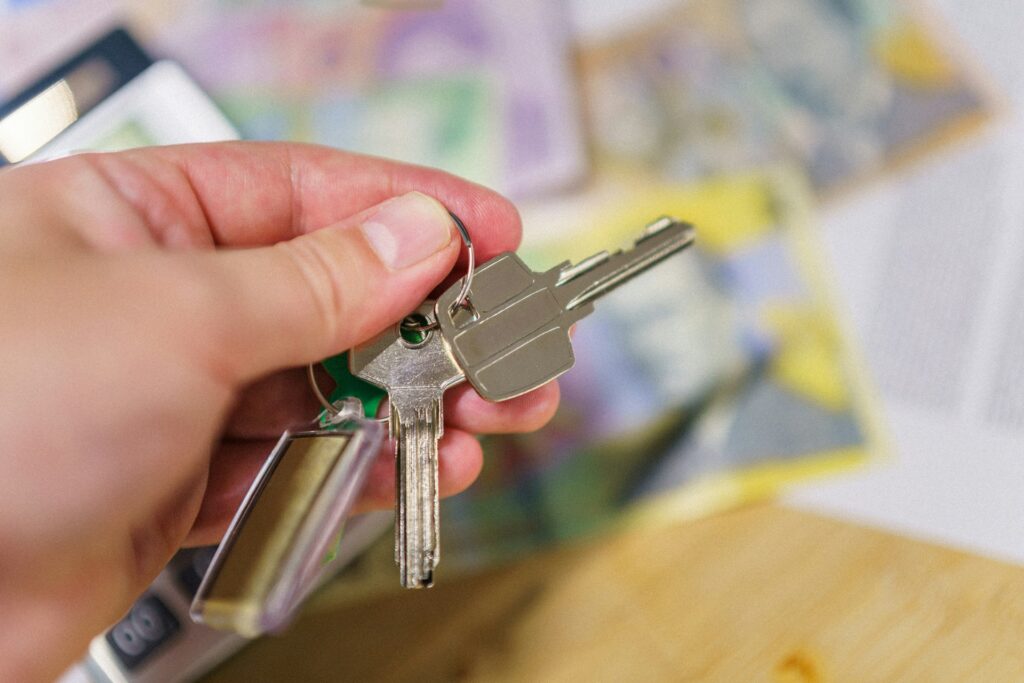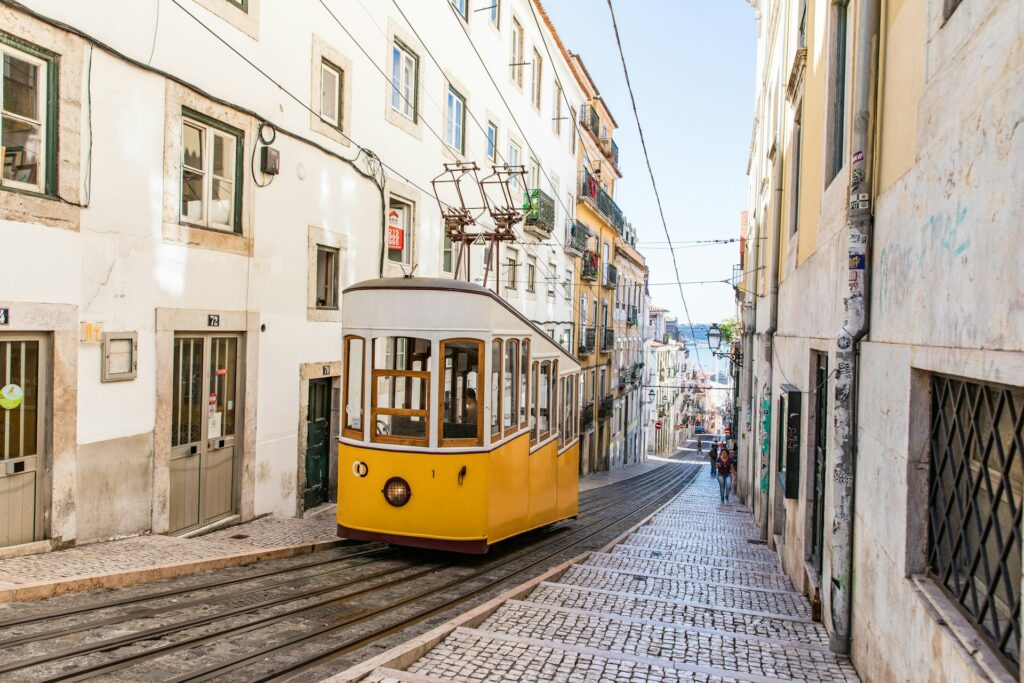Thinking about Renting a house in Portugal? Renters, in Portugal are facing a time finding a house due to market changes happening there recently. The rise in tourism has led to short term rentals and the surge in property prices due, to investments has made it harder to find affordable long term rentals. This article looks into why rental properties are becoming scarce and expensive in Portugal and how the changing economic situation is affecting both locals and newcomers looking for a place to live there.
Why is it becoming more challenging to find rental properties in Portugal?
A set of reasons has lead to gradually the rental house in Portugal becoming scarce:
1. Need by Expats and Tourists: Renting a house in Portugal
Portugal is now in vogue as a destination for expats, digital nomads, and tourists. That growth in demand for housing, and particularly in cities like Lisbon and Porto and the coast of Algarve has increased popularity. The foreign population residing in Portugal increased by 33.6% in 2023, totalizing 1,044,606 citizens with a Residence Permit.
2. Short-Term vs. Long-Term Rentals
Discussing about the house, homeowners tend to prefer short-term rentals in services like Airbnb rather than long leases, as it generates more profit. The effect of this shift is to reduce the amount of housing stock available for long-term rental.
3. Escalating Property Prices: Renting a house in Portugal
Extensive foreign property investment means that real estate has become extensive and expensive. Even those owners who are so kind as to rent out their properties at low rates may also see that they can get a better return by selling and then renting back, or more often though vacation rentals.
4. Shortage of Supply and Rental Housing as an Investment
Adequate investment in affordable rental housing has been lacking, and much new supply is luxury-based – more for homeownership not for those looking to rent affordably.
5. Regulation Changes: Renting a house in Portugal
With new restrictions from the government around rental contracts, some have become reluctant to rent long term as they feel it could be very challenging to evict tenants if things go wrong.
6. Golden Visa and Foreign Investment: Renting a house in Portugal
The Golden Visa program and favorable tax policies for foreign investors have encouraged higher inflows of property purchases for investment and led to an increase in real estate prices, reducing rental availability at affordable levels to locals.

The future of Renting Property in Portugal?
That is the million-dollar question. On one hand, real estate professionals say that the issues with housing market prices result from a low number of new constructions, where regulations and bureaucracy tend to delay new developments. On the other hand, the government has implemented several initiatives in the end of 2023 under the law “Pacote Mais Habitação” to prevent further increases in housing prices, including:
1. Ending the Golden Visa for Real Estate
It is no longer possible for foreign citizens to acquire property (new or rehabilitated) and qualify for the Golden Visa, which previously provided a pathway to Portuguese citizenship. The government believes that such foreign demand has negatively impacted housing prices.
2. New Short-Term Rental Licenses Are No Longer Available
Since last year, it has not been possible to buy property in all coastal areas of Portugal and the Algarve while applying for a short-term rental license (Licença de Alojamento Local). This means that foreign investors can no longer buy houses in the most sought-after areas of Portugal with the intention of short-term rentals. Instead, they will have to focus on long-term rentals to achieve an expected return. Recently, the government updated this law to allow buyers of properties with existing short-term licenses to transfer the license to their names.
3. Ending the NHR Program
The Non-Habitual Resident (NHR) tax regime was designed to attract foreign individuals, particularly retirees and professionals, to establish tax residency in Portugal. This program offers significant tax advantages, including exemptions on foreign-sourced income and a flat rate of 20% on income earned in Portugal for a specified period of ten years. The program was reformed at the end of 2023, reducing benefits that previously attracted foreign nationals, primarily retirees. The government stated that the program had already met its initial goals, and reducing tax benefits would consequently decrease foreign interest in relocating to Portugal, thus alleviating some pressure on housing market prices.

Renting a House in Portugal: What Should i know?
Renting a place in Portugal can be the beginnings of an exciting adventure, but even entry to the market is fiercely competitive. This post is a complete guide on understanding what you need to rent a house in this lovely country.
High Demand
The rental market in Portugal is very active, especially in urban areas (including Lisbon and Porto) as well as coastal regions (such as the Algarve). This competition also create quick turnover, as most people list properties hoping to sell them quickly. In order to increase your chances, be ready to move quickly when you do find a good one, and ideally have all your documentation and finances lined up before you even start the search.
Documentation
Most landlords request certain paperwork on the basis of which they will be able to assess their future tenants. Income proof is mandatory such as latest salary slips, your bank statements or your last income tax return. If self-employed you may be required to provide further evidence of your earnings, e.g. business accounts or invoices. This will save you more time in applying by having all of these documents ready to go.
Upfront Payments
In Portugal, it is customary for landlords to ask for upfront payments before you can move in. Be prepared to pay at least two months’ rent along with two months’ worth of deposits. This means that, in total, you may need to pay four months’ worth of rental costs before signing the lease. For non-residents, securing a rental can be more complex; you might need a Portuguese guarantor or may be required to pay an extra month’s rent in advance to demonstrate your commitment and reliability.
Contract Duration
A 12-month minimum is very common in Portugal when it comes to rental contract terms. So while you have the option to request a month-to-month agreement, landlords seem not to love them that much as longer agreements give them more stability and security. It will make a big difference in the probability of you getting that property if they felt comfortable knowing you’re there for an extended period. If you intend to sublet, make sure to have that conversation with the landlord in advance.
Early Termination: Renting a house in Portugal
It is important to understand the terms of your lease. In Portugal, the vast majority of leases have a clause which states that the tenants can cancel it 1/3 way through, on giving 90 days notice. In a 12-month lease, for example, you would have to remain in the unit at least seven months before terminating the contract. Be certain to check this part of the lease always carefully and read through it, but make you are ok with terms they lay out before signing.

Step-by-Step Guide for Renting a House in Portugal
Step 1: Choose Your Location
Start house hunting by researching different neighborhoods to know where you want to live and take into account proximity from work, schools, public transportation and amenities. Through visiting, you can get a better idea of what that environment and community is like.
2: Begin The Search For Your Dream Property
Best way to search for rentals is to starting with online platforms you trust like OLX and idealista and local listings via real estate agencies. Locals and already-existing expat communities are also valuable resources for scoping out properties that may not be listed online.
Step 3: Prepare Required Documents
Prepare all necessary paperwork, this usually involves income proof (pay slips, tax returns), identification and a reference if you get one. Whether or not you are a resident, there may be requirements such as the need to present a Portuguese guarantor or offer further financial guarantees to rent a property.
Step 4: View Properties: Renting a house in Portugal
You can schedule some visits to some of the properties which interest you and do a thorough inspection in them, Do not be afraid to ask questions of the landlord in regards to lease terms, utility costs, and other items relative to maintenance for your new apartment.
Step 5: Sign the Lease
Once you agree on the terms, you and your landlord should sign the lease together. Make sure to get a signed copy of your lease in case you need to refer back to it over the course of your tenancy.
Step 6: Make Upfront Payments
Get ready to pay up front costs (usually two months rent and two deposits). Always ask for receipts on these transactions to verify payment, which may come in handy if there are any discrepancies later.
Step 7: Set Up Utilities
If utilities are not a part of your rent you will have to either get them connected in your name or included as an add on. Check utilities-If utilities are up and running make sure to check on them, maybe some connections that you have will need your attention.
Tips for Renting an apartment in Portugal
Do Some Market Research
Educate yourself about the going rates of rent in your would-be neighborhood. It will enable you to tell how much is a fair price for what you are getting and save you from overpaying.
Only reputable websites
Hire reputable rental platforms or local real estate agencies to find listings. Either is a good way to protect yourself from a scam or ensure your potential landlord is honest.
Check it Out
Before you make a written commitment, visit the property. This is key for you to verify that the house is in a certain condition or standard.
Don’t forget about Local Laws
These can differ depending on your area, so be sure to follow local laws and make an effort to comply with any regional rental regulations. If you know your rights as a tenant, many issues can be resolved before they come too problematic during your rental period.

Rental Prices in Portugal
According to Idealista, the largest property search website, the asking price for renting an apartment with 75m2 is a bit cheaper in Viseu and Santarém with average monthly rent of €503 and 608, respectively. Regions in the mid-range, like Braga, Aveiro and Leiria have rents between 705€-728€ and Coimbra averages a rent of 803€. These include Setúbal at an average of €990 or Faro where it can cost approximately €1,095.
Cascais, Lisbon and Porto have the highest rents at €1,515, €1,500 and €1.155 per month respectively due to demand and desirable locations. Madeira comes in second with costs rising to €1,028. This variation illustrates how location, demand, and amenities influence rental prices throughout Portugal.
For more videos about investing or moving to Portugal, explore our YouTube channel here: YouTube Channel Portugal Residency Advisors®.
How we can assist you?
If you’re looking to rent a home in Portugal, partnering with a reliable advisor can make the process smoother and more efficient. At Portugal Residency Advisors®, we offer expert knowledge of the local rental market, helping you understand rental prices, neighborhood dynamics, and current trends. We assist in finding rental properties that match your needs, arranging viewings, and negotiating lease terms on your behalf.
We also provide objective advice, guiding you through the pros and cons of each rental option. From understanding legal requirements to managing contracts and ensuring all paperwork is handled correctly, we’re here to support you.
With Portugal Residency Advisors®, you’ll save time and stress, while finding the perfect rental property in Portugal with confidence.




